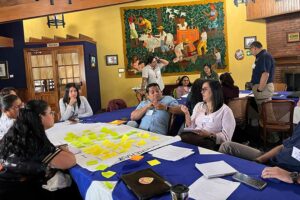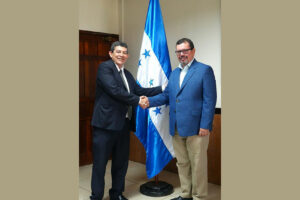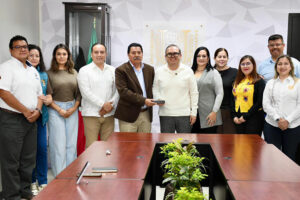Training Provided in the GANEMOS Master's Program Goes Beyond Theory
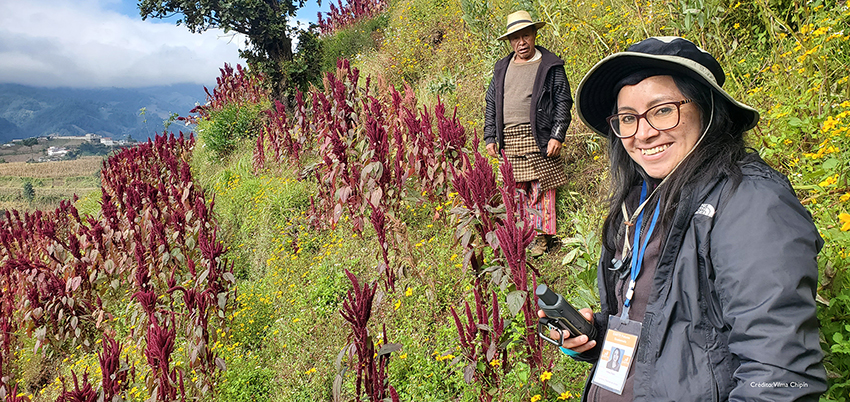
- Value chains of products such as coffee, cocoa, amaranth, livestock, and chocho flour were analyzed by students in the course on sustainable value chain management.
The group of students forming this year’s cohort of the Master’s in Agribusiness and Sustainable Markets (GANEMOS), at CATIE (Tropical Agricultural Research and Higher Education Center) managed to develop projects based on the analysis of sustainable value chains of various products in the Latin American region.
Adriana Escobedo, the coordinator of the master's program and professor of this course, indicated that a very important aspect of the teaching process is reflected in the final projects, as the students could apply the knowledge acquired in the course practically, analyzing real cases from the first week.
“That students can apply what they have learned about sustainable value chains in academic work that leads them to operate in real scenarios demonstrates that the competencies have been acquired, and this guarantees that by the end of the course, the group of students will be able to operate in similar tasks, whether in jobs within a company or through consultancy,” the professor expressed, reflecting on the achievement of the course's learning objective.
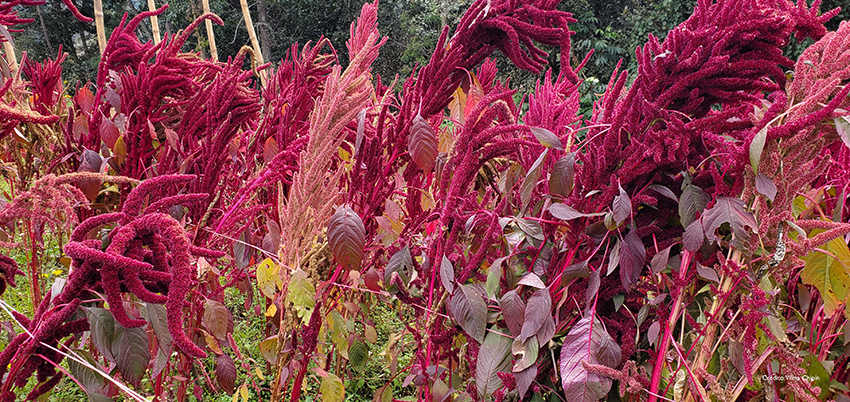
Working with Amaranth
Vilma Chipín is one of the students, from Guatemala, who, together with Olivia Carballo from Belize, María Acuña from Costa Rica, and Elkin Negrete from Colombia, analyzed the value chain of amaranth (Amaranthus spp.), a highly nutritious and culturally recognized product by indigenous populations of Mexico, Central America, and South America.Amarantus spp.), un producto altamente nutritivo y culturalmente reconocido por poblaciones indígenas de México, Centroamérica y Sudamérica.
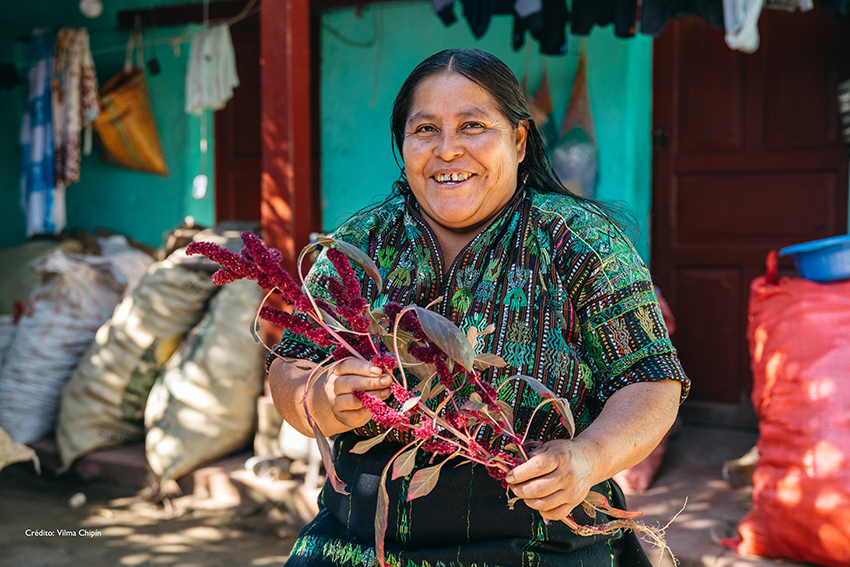
Chipín, who is an environmental engineer, mentioned that they decided to work with amaranth for several reasons. “It is an agricultural product related to the Mayan culture, but also because despite its nutritional importance, many are unaware of the benefits of the plant and the seed,” shared the student.
She added that this is a product predominantly worked on by women, representing an income for them.
Moreover, the work they do with amaranth represents a process of recovering this agricultural product. Regarding addressing the topic of value chains through an exercise that made them work with people and a real product, Chipín considered that “this helps to know and visualize the different types of actors that interact in each link of the chain, in order to improve and understand the opportunities that the chains have.”
Chains of Analyzed Products
The group of students analyzed the sustainable value chains of other products. For example, two groups focused on coffee to analyze the stages of that product's chain. Both centered on enterprises located in Comayagua and Copán, Honduras.
Another group worked with cocoa, with an enterprise located in the province of Jaén, Peru. Meanwhile, in Costa Rica, in the locality of Nicoya, they analyzed the beef production chain. Additionally, in Ecuador, the value chain of chocho flour (Lupinus mutables), which like amaranth, is considered a superfood due to its nutritional value, was analyzed.
With the analysis of the amaranth value chain, a total of six enterprises managed to learn from the students the information to recognize the type of existing chain, the links, the key actors, among others, opening the possibility to identify weaknesses that can be strengthened and improve the production and commercial process.
The Sustainable Value Chains course is taught in the GANEMOS Master’s program during the third trimester and lasts one month.
More information about the GANEMOS master’s program can be found at: https://agronegocios.catie.ac.cr
Crédito de la fotografías: Vilma Chipín
More information:
Adriana Escobedo A.
Academic Coordinator of the GANEMOS master's program
Environmental Economics and Sustainable Agribusiness Unit (UEAAS/EfD)
CATIE
escobedo@catie.ac.cr
+(506) 2558-2075
WhatsApp: +(506) 8598-5189
Written by:
Marianela Argüello L.
Communication and Knowledge Management Officer
Environmental Economics and Sustainable Agribusiness Unit (UEAAS/EfD)
CATIE
marguello@catie.ac.cr

